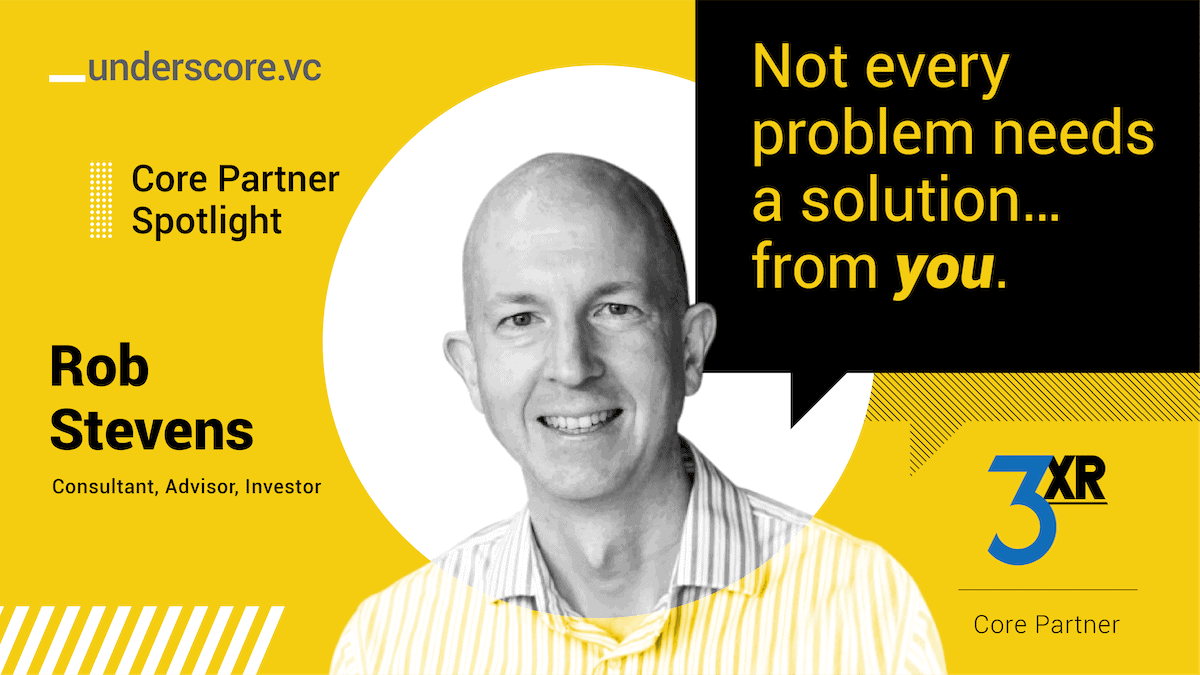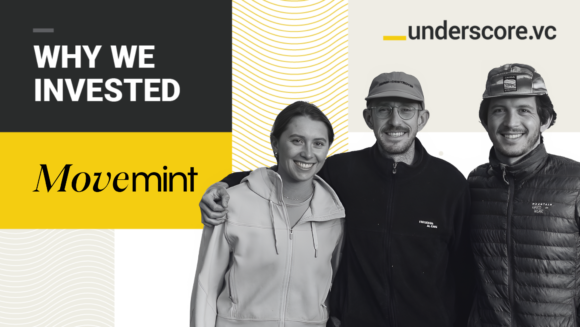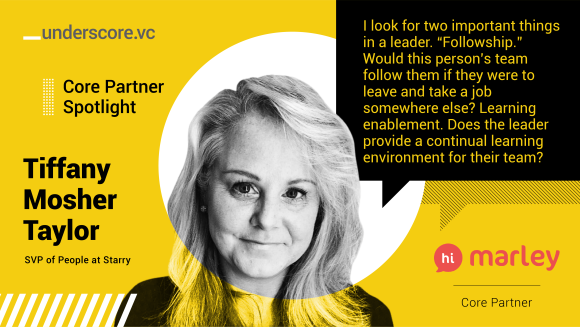At Underscore VC, we believe it takes a community to build an enduring, iconic company. That’s where the Underscore Core and our Core Partners come in. In this series, we’re featuring a handful of our Core Partners, sharing their insights, and describing their impact. Read on to learn more.
As a former engineer, Rob Stevens is eager to solve problems. If any issue arose, he would be ready to jump in. But after years in business development leadership roles, he’s gained a new perspective. “It turns out that when you’re leading a team, this isn’t a good strategy,” he says. “Not every problem needs a solution… from you.”
His technical background combined with robust go-to-market experience has made Rob the perfect Core Partner to Underscore portfolio company 3XR. “Working with Rob was like having a professor teach a hands-on workshop on sales, which gave us actionable skills that drove momentum with customers,” says Mike Festa, Founder and CEO of 3XR. “He was hugely helpful.”
What’s a Core Partner? Core Partners work closely with Underscore VC to help source investment opportunities and/or advise portfolio companies. In return, Core Partners receive “Core Allocations,” a portion of Underscore’s returns on the company via an interest grant in our Core Fund. That means incentives are aligned for productive relationships—at zero cost to our founders.
These partners are tremendously valuable. In this brief Q&A, Rob shares insights from his sales and go-to-market experience.
When Startups Outgrow People
Q: What’s something you had to learn the hard way?
A: Sometimes startups outgrow people. The person who is fantastic in the early, scrappy, “just get it done” phase may not adapt to the “now we have something to lose” phase of the company.
This is especially true of engineering. Someone might be great at hacking together a solution, but when you have enterprise customers with enterprise expectations, something you whipped together overnight just won’t do. You may be able to move these people to a small team that’s working on cutting-edge stuff, but sometimes there just isn’t a place where they’ll be happy. Be prepared to make changes.
Understand Your Audience
Q: What’s one of the most important things to know about building a successful startup?
A: It’s not just about the product. This sounds like something you shouldn’t have to say in 2021, but I still see some founders pitching products, not businesses. A great business has clear benefits for a specific person, supported by amazing features. You also need an economical way to deliver your product to that target person. If you don’t understand who will buy, why they’ll buy, or how you’ll reach them, you don’t have a complete business idea.
Knowing When to Step in as a Leader
Q: What’s one important thing you’ve learned about leadership?
A: Not every problem needs a solution… from you. As a former engineer, I’m eager to solve problems, so whenever someone presented me with one, I’d try to solve it. It turns out that when you’re leading a team, this isn’t a good strategy.
Two things happen: First, you end up spending your time solving your team’s problems and not doing the things that you are supposed to do. Second, you train your team that it’s not their job to solve problems.
That said, it’s also not great to say, “That sounds like your problem. I’m too busy doing manager stuff.” When someone brings you a problem, step back and first decide what sort of problem it is. Do you solve it yourself? Together? Do you point them to resources that can help them solve it? Let that guide your response.
A Highlight as a Core Partner
Q: Can you share an “aha” moment from working with 3XR?
A: I’d never used Augmented Reality (AR) before working with the 3XR team. During our initial meeting, they used an AR app on an iPad to put a virtual coffee maker on the table in front of me. I literally looked around the iPad to see if it was there!
Apparently, I wasn’t the first person to have that reaction. I suspected that actually seeing AR in practice was a key qualifier for someone who might buy 3XR’s service. We couldn’t “evangelize” the AR experience over the phone. We needed to initially focus on people who were already believers in AR and show them how 3XR could make it an economical and scalable part of their business.









